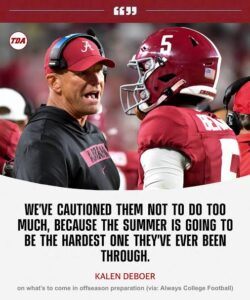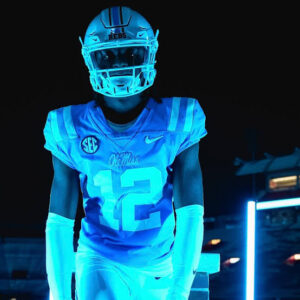
ESPN Report Names Bear Bryant as the Greatest Coach in College Football History, Cementing Alabama’s Legacy and Setting a New Standard for Power Running Backs Through the Ages

In a landmark report released by ESPN this week, legendary Alabama head coach Paul “Bear” Bryant was officially recognized as the greatest coach in college football history. The extensive analysis, which factored in decades of coaching performance, championships, player development, and long-lasting impact on the sport, not only reinforced Bryant’s iconic status but also elevated Alabama’s football program as the definitive blueprint for success in the college game.
The report, which has quickly become the subject of national conversation, examines Bryant’s unrivaled achievements during his time leading the Crimson Tide. With six national championships, 14 SEC titles, and a staggering 323 career wins, Bryant’s record remains one of the most decorated and dominant in the sport’s history. But what sets this evaluation apart is how ESPN ties his legacy not just to his wins, but to the cultural and structural transformation he brought to Alabama and college football as a whole.
“Bear Bryant was more than just a winner—he was a builder of men, a strategist ahead of his time, and a symbol of college football’s golden era,” the report stated. “His ability to consistently evolve his teams, develop elite talent, and command respect across every corner of the sport made him an enduring icon.”
Perhaps most notably, the report draws a compelling link between Bryant’s coaching philosophy and the emergence of the power running back as a defining element of Alabama’s offensive identity—one that still influences the program and the sport today.
From Johnny Musso to Bobby Humphrey and later into the Nick Saban era with stars like Derrick Henry and Mark Ingram, ESPN credits Bryant with laying the groundwork for a system where physically dominant, downhill runners became central to winning football.
“Bryant understood the value of toughness, physicality, and endurance,” ESPN’s analysts noted. “He didn’t just coach players—he engineered a culture where running backs were expected to carry the weight of the team. That mentality has survived decades and inspired generations of future backs.”
The report further suggests that Alabama’s dynasty, both past and present, owes much of its philosophical DNA to Bryant’s influence. Though head coaches have come and gone, and the game itself has evolved, the principles Bryant instilled—resilience, discipline, and brutal efficiency—remain embedded in the program’s identity.
In the wake of the report’s release, social media erupted with praise for Bryant’s legacy. Former players, coaches, and fans took to Twitter and other platforms to share personal stories and highlight the enduring respect for his contributions to the sport.
For Alabama faithful, the confirmation of what many already believed—that Bear Bryant is the greatest of all time—is not just a moment of pride, but a reminder of how deep and powerful the roots of their football tradition truly run.







